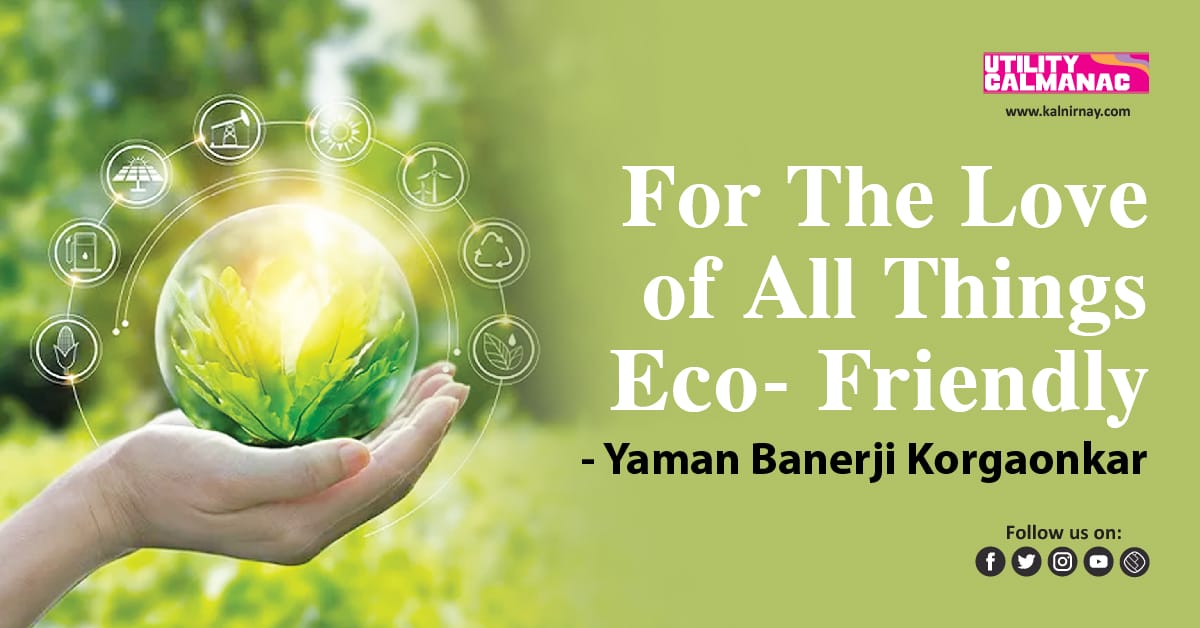For The Love Of All Things Eco-Friendly
Tips on making sustainability a family lifestyle.
As a child raised in an Indian middle-class family, little habits of jugaad were a part of my childhood, especially when it came to managing waste. We would try to use fewer disposable plastics, recycle plastic bags endlessly and were acutely aware of what scarcity of water looked like. Most of these habits stayed with me. The birth of my daughter in 2013 was a huge turning point in my life. While motherhood changes your body and mind, it also changes how you see the world. It is a chance to look at the world that we leave the next generations to inherit. And now, sustainability has become a way of life.
Some wonderful online communities can be a starting point towards sustainable living. Cloth diapers instead of regular ones, menstrual cups instead of sanitary pads, natural detergents instead of chemical ones – many substitutions easily available to reduce one’s carbon footprint.
However, one cannot stop at just substituting everyday products. Sustainable living is also understanding that your love for your child is not measured by the clothes and toys bought. It is essential to reduce consumption by using pre-loved toys and clothes or creating DIY projects to upcycle existing things around the house.
Instilling the love for all things eco-friendly
On one occasion, my three-year-old was encouraged to use an old flower pot lined with soil to recycle discarded pooja flowers. These pooja flowers turning into soil is nature’s magic at its best.
Along with composting, bio-enzymes are a good way to replace chemical cleaners. One can easily make these at home.
When shopping, carry a backpack and a few extra cloth bags or dabbas to bring home vegetables or grains.
Everything seemingly swast-sasta-tikaau in these practices is a precious act, to do our little bit for the only place we call home, our planet. Being eco-conscious, as the word suggests, doesn’t need us to go out of our way to do things. In a nutshell, it is about MORE awareness about our actions and LESS consumption beyond the necessary.
Driving eco-friendly decisions
Today, more than ever, in a world heavily driven by consumerism and people choosing convenience over consciousness, every effort counts. Every time you refuse a flimsy polythene bag from a vendor, or take out your dabba to pack leftovers at a restaurant, you are potentially creating a ripple effect. You are ensuring that at least one person knows that this is possible, this is simple, and when you see people around you silently follow, it is our environment that lets out a loud, joyful cheer.
Taking the first step
Many assume going low-waste must be time-consuming, expensive and daunting; it isn’t. The key is to not try doing it all in one go. Start small with simple steps you can accommodate in your lifestyle and take it from there.
For example, keep a small cloth bag handy in your pocket or bags. Or, carry a bottle of water and refuse a plastic bottle for the same. Or it can be something even as simple as switching off electronic appliances and running taps when you don’t need them.
One of the easiest steps we can take is to segregate waste at home. Dry waste can be cleaned and kept aside and, if possible, the wet waste composted. Seeing waste transform into nutrient-rich soil is one of the most enriching experiences, especially once you see what a simple act, with a little effort can do.
Changes like switching from synthetic pads to safe and reusable period products like menstrual cups or cloth pads are a liberating feeling. Modern cloth diapers will prevent mountains of disposable diapers in a landfill.
Ditching synthetic cleaners for simple bio-enzyme-based ones will be kind to our skin and that of our babies and pets, too!
The most difficult and yet most important step is to be able to refuse all that isn’t needed. The plastic bag for your bread, the shiny wrapper on gifts, the thermocouple in packaging, tiny disposable water bottles at parties, and clothes that you won’t wear more than twice!
While it feels awkward to not align with the masses, find a tribe that does. This simple act doesn’t just reduce the weight of waste on our home planet but liberates us from the burden of giving in to something our values don’t permit.
You don’t have to be an activist to be leading an eco-friendly way of life. You have to care.
To read more English blogs, please visit our blog section.
» Yaman Banerji Korgaonkar
The author is an architect, social entrepreneur, and a visiting faculty at Sir. JJ College of Architecture.

